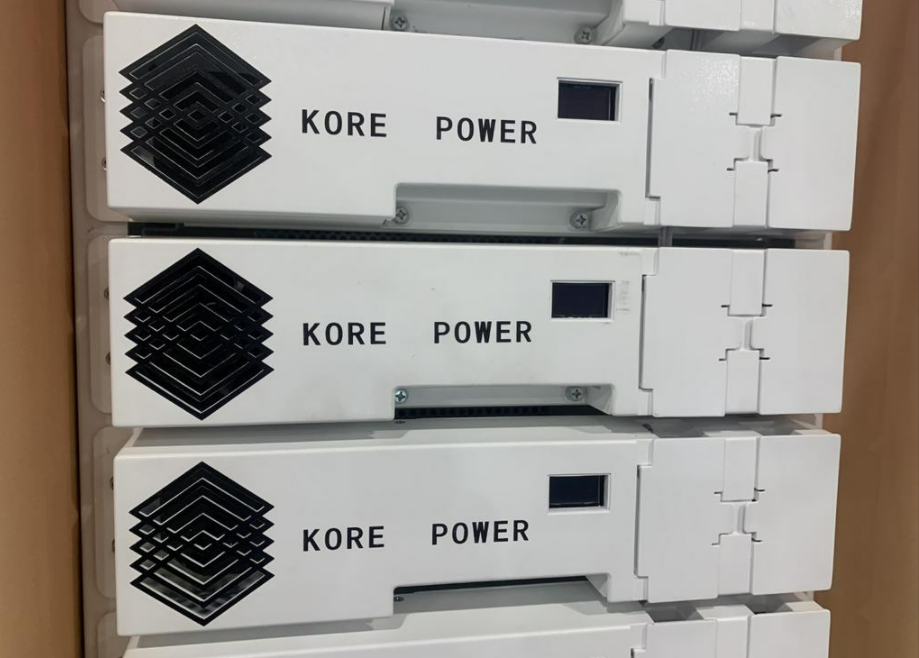New battery storage facilities coming to Phoenix as US fights China’s production dominance

Renewable energy sources like wind and solar are central to the world’s clean energy future, but these sources can only reach their potential with the help of a lesser-known technology: battery storage.
Batteries are essential for renewable energy because the generation and deployment of renewable power does not happen at the same time; Put more simply, the sun does not shine at night and the energy gathered during the day needs to be stored until the evening when people come home and power usage spikes.
There are already several battery storage projects connected to the grid here in Arizona, but a larger, new project is on track to be the first one established in the city of Phoenix.
Strata Clean Energy of Durham, North Carolina, is in the early stages of developing a standalone battery storage project in north Phoenix, near Deer Valley Airport. The company is actually working on two projects — called Deer Valley and Scatter Wash — which are near each other and collectively known as Scatter Wash Energy Storage.
Augment existing grid
The project is expected to cost $450 million to produce a site capable of 400 megawatt / 1,600 megawatt hours of battery storage, which is about enough energy to power 350,000 and 400,000 homes for an hour, depending on demand.
This site was selected because of its proximity to the APS Scatter Wash substation, which came online last year, and the project will connect to the APS grid when it goes live in 2024.
Augmenting the existing grid with battery storage is a big part of APS’s goal of reaching 100% clean energy by 2050 and Will Mitchell, vice president of business development at Strata, said there is a lot of work to do before that goal is met.
“It’s a startling amount of batteries that will be developed over the next decade in Arizona, to meet both load growth as well as retirements,” he said, referring to retirements of other power sources like coal and natural gas.
APS currently has a handful of small batteries with less than 10 MW capacity on its grid now, which is just a small fraction of the storage the new Strata project aims to deliver. In 2019 APS said it planned to add 850 MW to its grid by 2025, but it will need plenty more to reach its 2050 goals.
Keeping up with China
Demand for batteries is soaring across the world, but domestic supply is constrained, in part, because there simply are not very many U.S. battery makers.
The vast majority of the world’s batteries are produced in Asia, by a small handful of companies including China’s CATL, South Korea’s LG Chem and Japan’s Panasonic. China specifically produced more than 70% of the world’s lithium-ion batteries last year and will continue to dominate in the coming years, according to S&P Global Market Intelligence.
Most U.S. battery-making might is pooling in the Midwest, in places like Michigan, Ohio and Tennessee as automakers lead the battery production effort from their historic factory centers.
But there is one company, KORE Power, hoping to make Arizona a new battery hotspot. KORE is developing a 1 million-square-foot, 12 gigawatt-hour output factory — dubbed the KOREPlex —in Buckeye that is expected to break ground in the first half of next year and start production by the end of 2023.
Last week, at the Energy Storage Association’s annual conference in Phoenix, KORE was one of the only battery manufacturers present, making the company a magnet for attention.
At the conference Lindsay Gorrill, CEO of Idaho-based KORE Power, told the Business Journal that his company will offer supply reliability that international producers will struggle to match.
“The demand in batteries is growing so exponentially, that people are coming to see us about delivery,” he said. “Everyone’s worried about getting product delivered, and we have the ability to deliver so people come to us.”
KORE is already operating a 6 GWh factory in Jiaozuo, China (which is owned by its manufacturing partner Do Fluoride Chemicals) but Gorrill envisions a hub of clean energy companies coming to Buckeye and clustering around the forthcoming factory.
Zero Electric Vehicles, a Gilbert-based EV startup, is already on board after agreeing to a battery development and design pact back in September. Gorrill hopes other battery users, including recycling efforts, will follow suit.
KORE’s batteries will one day end up in all manner of applications, from e-mobility users to standalone battery storage facilities. But when it comes to end markets, battery producers generally prefer working with electric vehicle makers and other e-mobility companies because they need a greater volume of batteries; Battery storage companies, while central to the clean energy move, don’t need as many units.
The U.S. battery industry is working to establish a bigger foothold in the global market, but the looming shadow of Asian producers is never far from mind: The premier sponsor at this year’s Energy Storage Association conference was Sungrow, a Chinese company that makes solar equipment.
